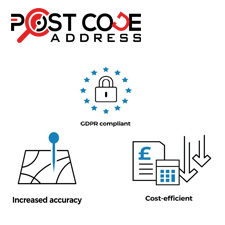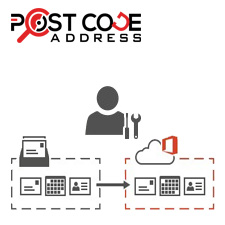

Postcodes are a fundamental part of modern society, allowing for efficient and accurate delivery of mail and packages, as well as serving as a vital tool for businesses and organizations to better understand their customers and communities. In this blog post, we'll explore the importance of postcodes and their various uses in modern society.
At its core, a postcode is a string of characters that is used to identify a specific geographical area, typically for the purposes of mail delivery. Postcodes were first introduced in the UK in the 1950s, and have since been adopted by many countries around the world, including the United States, Canada, Australia, and Germany, among others.
One of the primary reasons that postcodes matter is that they allow for efficient and accurate delivery of mail and packages. By using a postcode to identify a specific area, postal workers can quickly and easily sort mail and packages, reducing the likelihood of errors or delays in delivery. This is particularly important in a world where e-commerce is growing rapidly, and more and more packages are being delivered every day.
In addition to their use in mail delivery, postcodes also play a crucial role in business and organizational operations. By using postcodes to collect and analyze data, businesses can gain insights into the demographics and characteristics of their customers and communities. This can be particularly useful for businesses that operate across multiple regions, as postcodes can be used to identify trends and patterns in customer behavior that might not be immediately apparent otherwise.
For example, a company that sells outdoor equipment might use postcode data to identify areas with a high concentration of people who enjoy hiking or camping. This could help them to target their marketing and advertising efforts more effectively, ultimately leading to increased sales and revenue.
Postcodes can also be used in a variety of other applications, such as emergency services and public health. By using postcodes to identify the location of an emergency or outbreak of a disease, emergency responders and public health officials can quickly and efficiently respond to the situation, potentially saving lives in the process.
In recent years, the use of postcodes has expanded beyond their traditional applications to include a range of new technologies and tools. For example, geolocation services like Google Maps and Uber use postcodes to provide accurate location information to users. Postcode data can also be used in machine learning algorithms to make predictions and identify patterns in data, such as predicting the likelihood of a customer purchasing a particular product based on their postcode.
While postcodes are undoubtedly a powerful tool for businesses and organizations, it's important to note that there are also some potential downsides to their use. One of the biggest concerns is privacy, as postcode data can be used to identify specific individuals or households. As such, it's important for businesses and organizations to be transparent about their use of postcode data, and to ensure that they are collecting and storing data in a responsible and ethical manner.
In conclusion, postcodes are a crucial part of modern society, playing a vital role in the efficient and accurate delivery of mail and packages, as well as serving as a powerful tool for businesses and organizations to better understand their customers and communities. As the use of postcodes continues to expand and evolve, it's important for businesses and organizations to stay up-to-date on the latest developments and best practices, in order to ensure that they are making the most of this powerful tool while also respecting the privacy and rights of individuals and communities.










